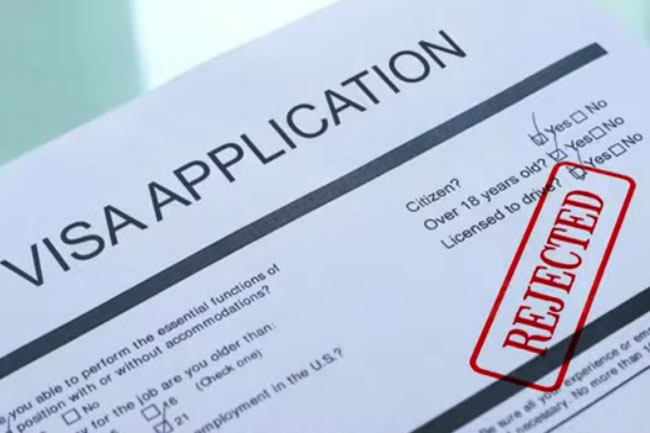With the release of a report recommending ways to reform the education sector, immigration policy could also be affected if further planning is ignored. Dr Abul Rizvi reports.
THE UNIVERSITIES ACCORD released last week provides a framework for the future of Australia’s universities, including the role of international education. It makes important recommendations for international education that may fundamentally change immigration policy for the better.
The Accord states:
‘In 2022, Australian higher education providers enrolled almost 450,000 international fee-paying students (more than a quarter of total enrolments), with around 120,000 of these studying Australian higher education courses from outside Australia. International student fees contributed more than a fifth of overall university funding. Now Australia’s fourth largest export, international education is a permanent fixture of the economy.’
The Accord makes the usual statements about diversifying source markets and protecting overseas students from unscrupulous agents and providers without saying much about how this should be done.
It goes on to say:
‘Some international students seek a migration pathway. In line with the Australian Government’s Migration Strategy goal for a better targeted system, the tertiary education sector should encourage these students to study courses linked to Australian skill shortages and to study in regional locations.’
At Recommendation 22(a), the Accord states government should:
‘...work with tertiary education providers to ensure greater alignment and coordination between the courses and programs that are marketed to international students and the national skills agenda and relevant migration initiatives.’
Recommendation 22(b) says that governments and education providers should:
‘...support the growth of international education in regional and remote areas, encouraging providers to communicate the benefits of studying and living in regional and remote Australia.’
In some ways, these are statements of the obvious given around 25 per cent of the migration program has for over 20 years been comprised of former overseas students. The pathway to permanent residence has been crucial to growth of the industry, including in regional Australia and the smaller capital cities.
But until the Government announced late last year that it would abolish the Genuine Temporary Entrant (GTE) requirement in student visa regulations, no government report would ever have suggested encouraging overseas students to study courses linked to Australian skill shortages. Universities could not openly encourage students to undertake such courses because that would be contravening the GTE requirement.
These recommendations in the Universities Accord are a major step towards re-thinking the objectives of the overseas student program.
It is a pity the report does not go further and make the obvious point that tuition fee revenue is actually a relatively minor benefit from the overseas student program. Addressing long-term skill shortages through the recruitment of potential future citizens who may work in the Australian economy and contribute to Australian society for another 40 years dwarfs the benefit from tuition fee revenue.
The crucial question is how the Government could give effect to these recommendations. Will the student visa regulations give priority to students who enrol in courses linked to Australia’s long-term skill shortages and have the academic record to be successful in these courses? Will overseas students who complete these courses be given priority access to a post-study work visa?
How can employers who say they are facing huge skill shortages be encouraged to sponsor overseas students who successfully complete courses in shortage areas? While a discount in the payment made by sponsoring employers to the Skilling Australians Fund may be an option, employer lobby groups must do more to increase the use of employer-sponsored visas for students who complete courses in skill shortage areas.
To some degree, the Government has already provided a signal to education providers and students about the courses it wants overseas students to study by only inviting people with qualifications in health or education to apply via the Skilled Independent category through its latest invitation round. However, excessive reliance on the points-tested Skilled Independent category would be wrong. Employer sponsorships and state-nominated visas would be a far preferable pathway to permanent residence for overseas students with Australian qualifications in key skills.
Recommendation 23(b)(i) goes to the need to manage demand volatility. Coalition government policies in late 2021 and early 2022 massively stimulated demand from overseas students without adequate quality protections. The Albanese Government’s response was painfully slow and did not start until July 2023.
Better demand management policies are desperately needed. The massive and unprecedented blowout in net migration in 2022-23 was not just a failure to focus on managing net migration, but also one of ignoring the need to manage demand volatility in international education.
The current approach of using subjective criteria to implement a huge increase in student visa refusals is both ham-fisted and unsustainable. The Government must implement objective criteria, such as those used for university entry in our major source nations, to both better manage demand and ensure Australian education providers only recruit overseas students with a high level of academic capacity and not undercut the academic standards that are required of domestic students.
Recent experience in the UK and Canada has abundantly demonstrated education providers, including universities, who are driven by the desire to increase tuition revenue, cannot be relied on to maintain standards even with the existence of quality regulators.
Dr Abul Rizvi is an Independent Australia columnist and a former Deputy Secretary of the Department of Immigration. You can follow Abul on Twitter @RizviAbul.
Related Articles
 This work is licensed under a Creative Commons Attribution-NonCommercial-NoDerivs 3.0 Australia License
This work is licensed under a Creative Commons Attribution-NonCommercial-NoDerivs 3.0 Australia License
Support independent journalism Subscribe to IA.















